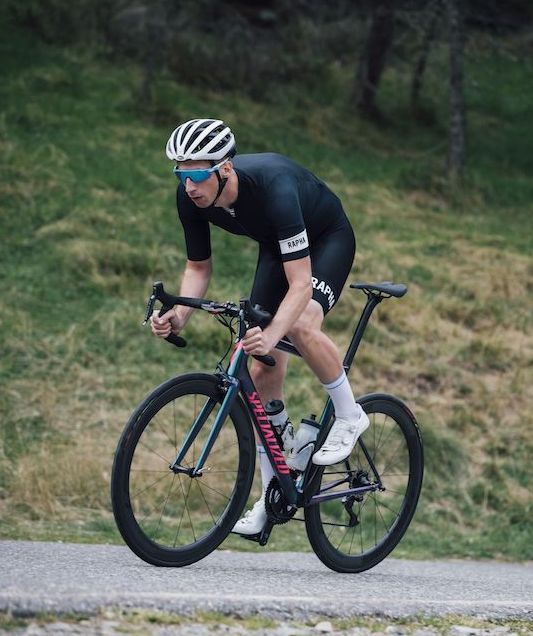Milan-San Remo: how the last 16 editions have been won
Cycling Weekly casts an eye over the past 16 editions of Milan-San Remo to see how it panned out
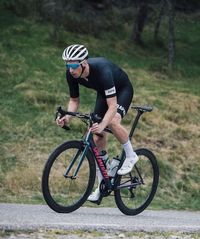
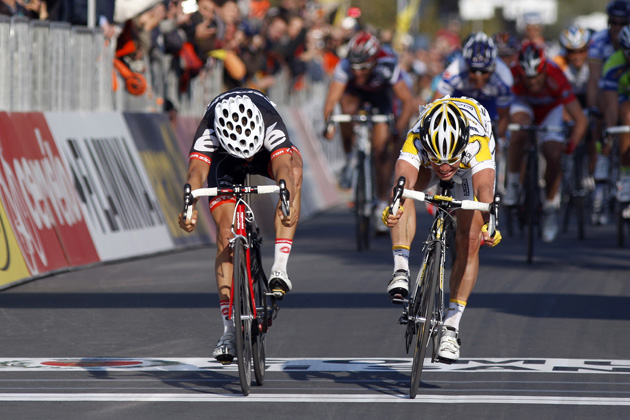
Mark Cavendish wins Milan-San Remo 2009. Photo by Yuzuru Sunada
The latest race content, interviews, features, reviews and expert buying guides, direct to your inbox!
You are now subscribed
Your newsletter sign-up was successful
Cycling Weekly takes a look back at past 16 editions of Milan-San Remo see how the final outcome was achieved.
Although it is known as the 'sprinters' classic', the fast-men don't always have it their own way. Eight editions in the past 16 years have produced a winner from a late escape or attack on the flashpoint of the Poggio climb, which peaks at just 5.5km from the finish.
For everything you need to know about this year's race, including a detailed look at the route, see Cycling Weekly's in-depth 2019 Milan-San Remo preview. Milan-San Remo takes place on Saturday, March 23 2019.
2018
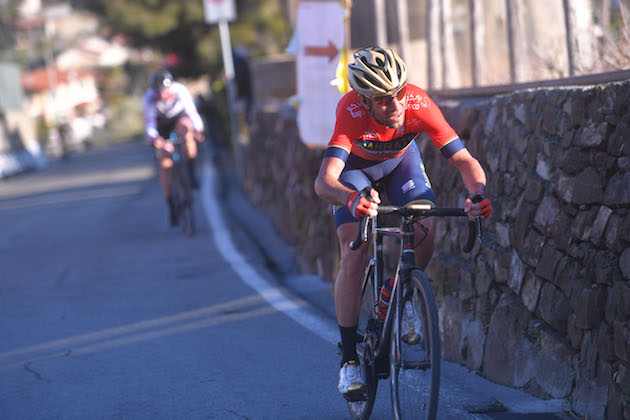
How it was won: POGGIO ATTACK
Vincenzo Nibali (Bahrain-Merida) launched a stunning attack on the Poggio with 6km to go, leaving behind the sprinters behind on the climb before using his descending skills to maintain his gap. The peloton looked to be closing in on him within the final kilometre, but the Italian was able to hold them off by a few metres to take a famous victory.
2017
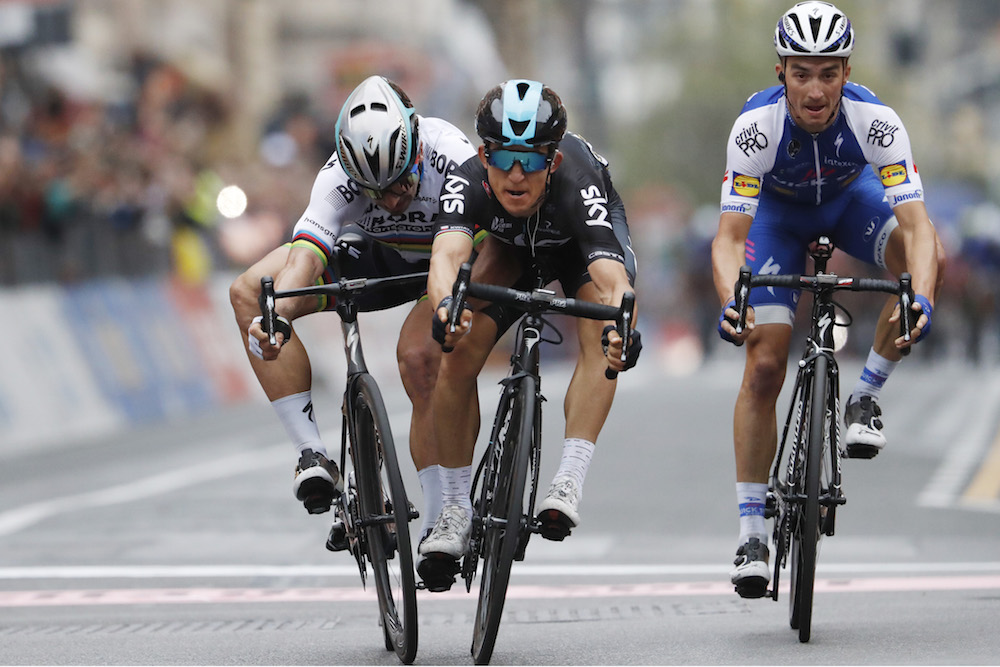
How it was won: POGGIO ATTACK
Michal Kwiatkowski (Team Sky) out-paced Peter Sagan (Bora-Hansgrohe) in a three-up sprint with Julian Alaphilippe (Quick-Step Floors). Sagan had instigated an attack over the Poggio, with only Kwiatkowski and Alaphilippe able to match his move. Amazingly, Kwiatkowski just edged out his two breakaway companions on the line.
The latest race content, interviews, features, reviews and expert buying guides, direct to your inbox!
2016
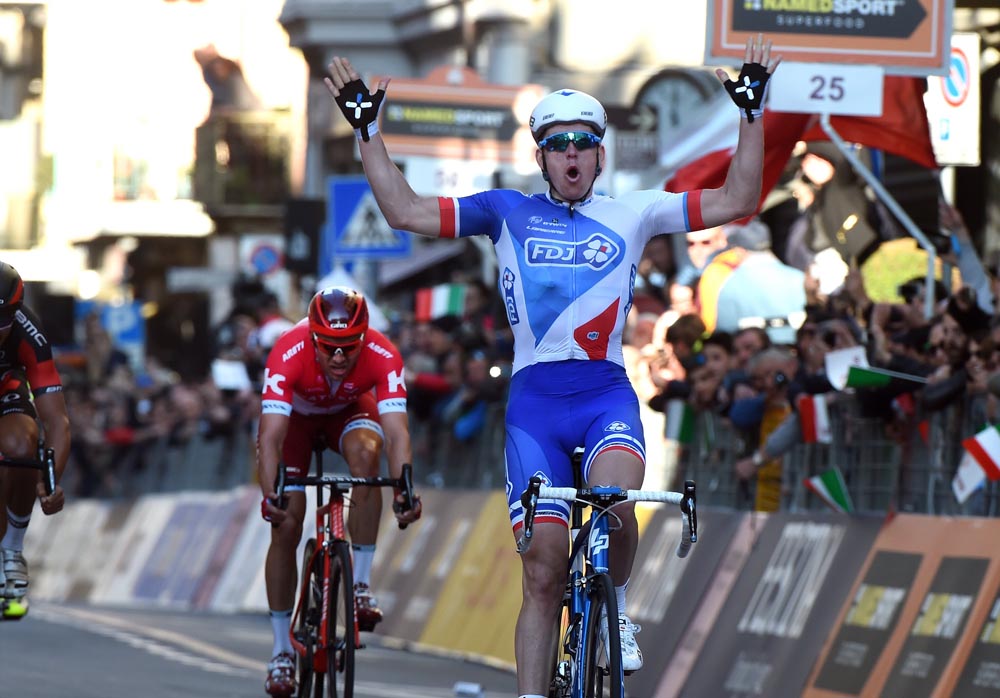
How it was won: SPRINT
Arnaud Démare (FDJ) surprised many to become the first Frenchman to win Milan-San Remo since Laurent Jalabert in 1995. Démare capitalised from the bunch reforming after late attacker Michal Kwiatkowski (Team Sky) was caught in the final kilometre and a crash took out fellow sprinter Fernando Gaviria (Quick-Step). Britain's Ben Swift (Team Sky) placed second, with Jurgen Roelandts (Lotto-Soudal) in third.
2015
How it was won: SPRINT
John Degenkolb (Giant-Alpecin) took the sprint victory from a reduced peloton after the main bunch split up on the Poggio. Degenkolb edged out defending champion Alexander Kristoff (Katusha) in the sprint, with Michael Matthews (Orica-GreenEdge) in third.
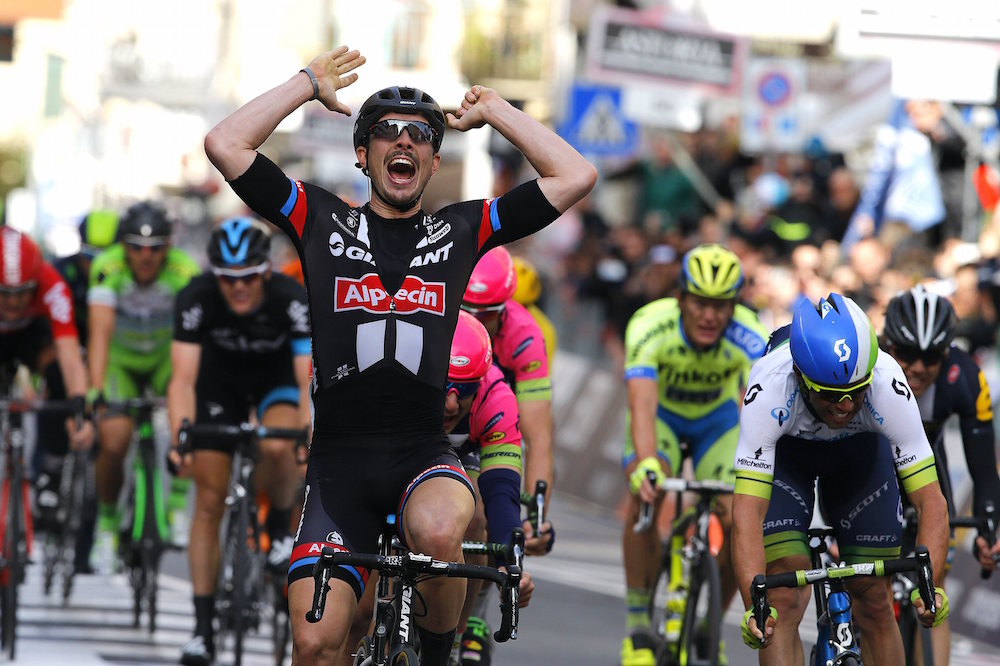
2014
How it was won: SPRINT
Norwegian Alexander Kristoff (Katusha) propelled himself into the limelight by taking the bunch sprint win in 2014 on a long, cold day. The race was surprisingly free of attacks, allowing the peloton to reach San Remo intact to contest the win.
2013
How it was won: POGGIO ATTACK
Gerald Ciolek (MTN-Qhubeka) surprised many by winning the 2013 edition, which was heavily affected by snowfall and with two climbs removed at the last minute. Ciolek was part of a six-rider move on the descent of the Poggio, and out-paced Peter Sagan to take the victory.
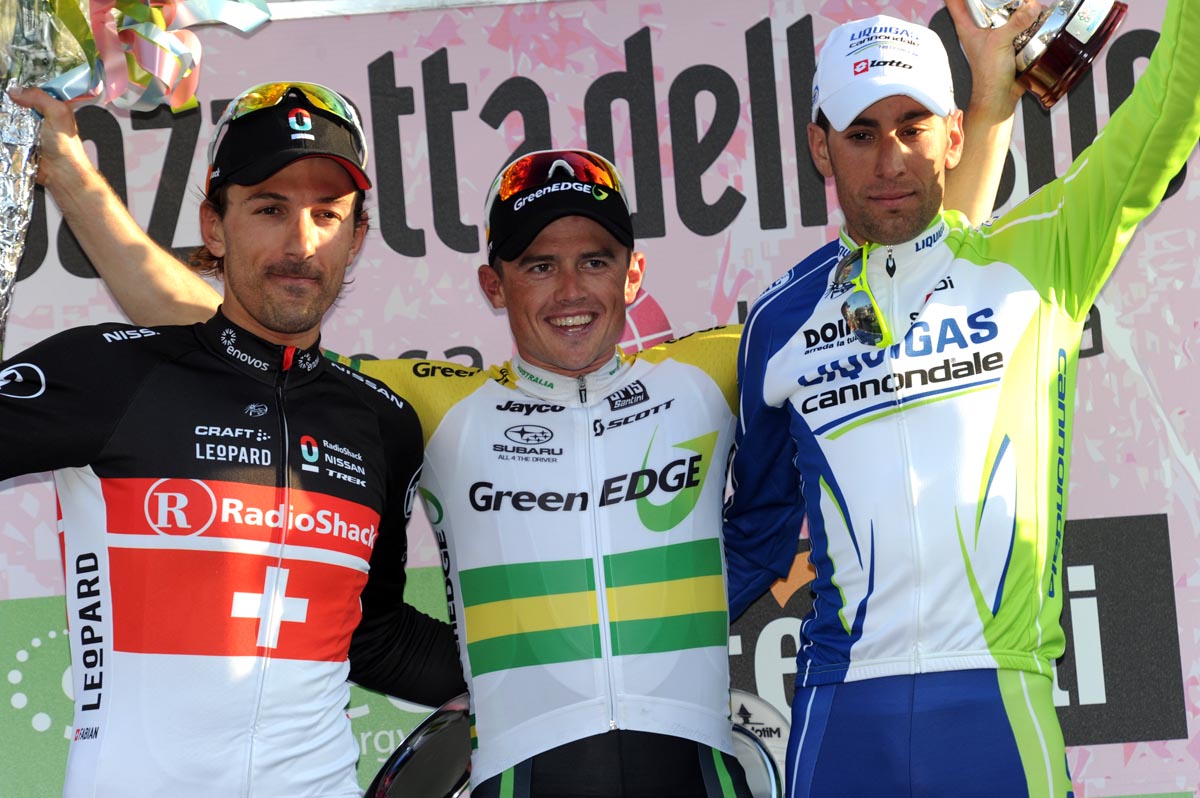
2012
How it was won: POGGIO ATTACK
Simon Gerrans (Orica-GreenEdge) became the second Australian to win Milan-San Remo after Goss the previous year. Gerrans took the win from a three-man escape that had formed on the Poggio, beating Fabian Cancellara and Vincenzo Nibali to take the honours.
2011
How it was won: POGGIO ATTACK
Matt Goss (HTC-Highroad) won the 2011 edition out of an eight-man escape group that had formed after the Poggio climb, beating Fabian Cancellara and Philippe Gilbert in the sprint.
2010
How it was won: SPRINT
Spaniard Oscar Freire timed his sprint to perfection having hidden in the peloton for the entire day. A group instigated by Filippo Pozzato broke clear on the descent of the Poggio, but were caught with 1.2km to go. The Rabobank rider showed the acceleration he's famed for, and duly took his third victory in la Primavera.
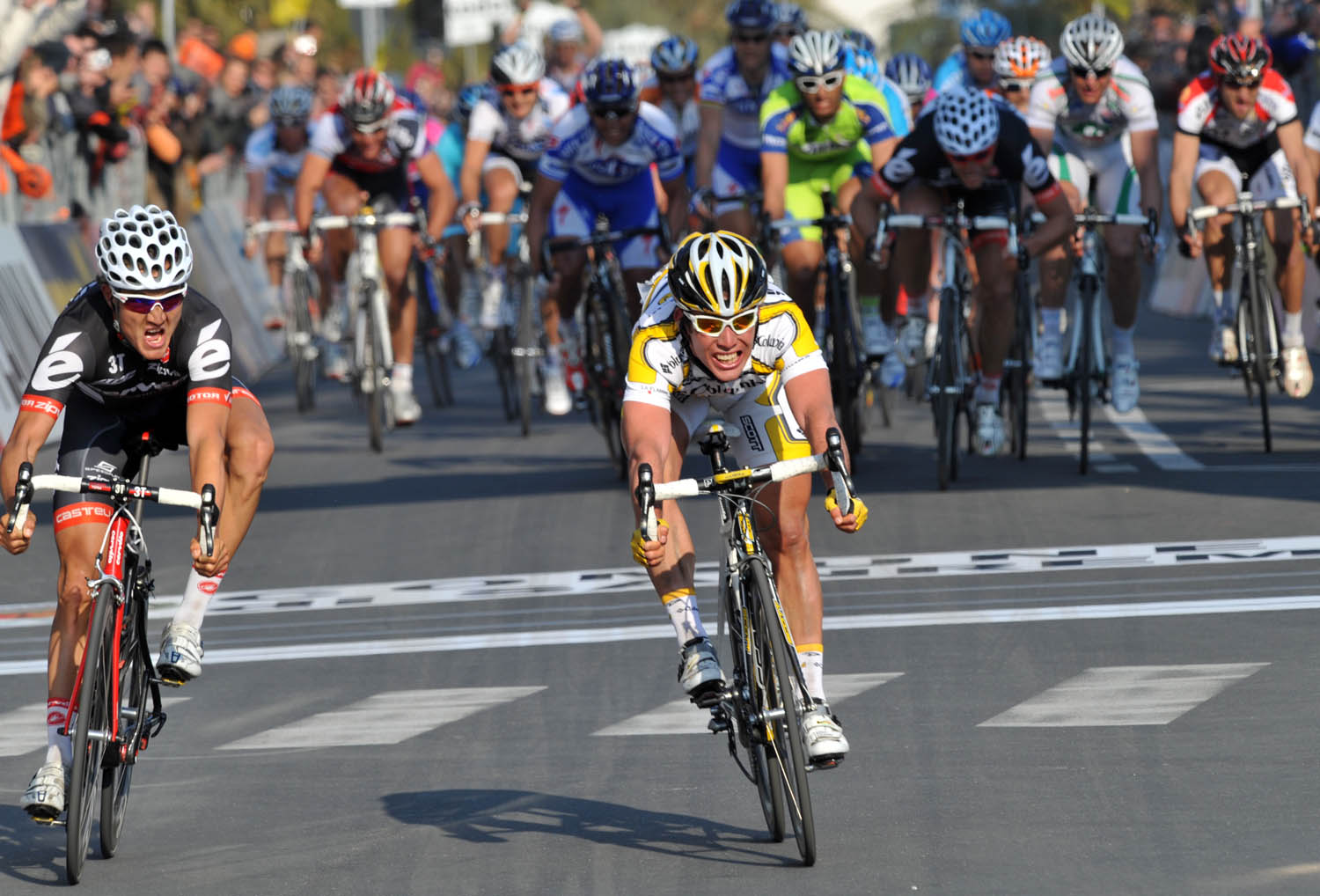
2009
How it was won: SPRINT
When Heinrich Haussler launched a long sprint and opened up a significant gap on the bunch, it looked like he had the race sewn up. But Mark Cavendish stunned Haussler by quickly making up the distance to catch and pass him on the line by a matter of centimetres.
2008
How it was won: LATE ATTACK
Fabian Cancellara launches a strong late attack, and none of the sprinters or their teams can match the time trial champion's turn of speed in the closing kilometres. As late attacks go, its timing was perfect.
2007
How it was won: SPRINT
Philippe Gilbert and Riccardo Ricco attack on the Poggio but are caught. Oscar Freire takes the bunch sprint
2006
How it was won: POGGIO ATTACK
Samuel Sanchez, Frank Schleck and Rinaldo Nocentini, Filippo Pozzato and Alessandro Ballan get away on the Poggio and stay away. Nocentini attacks with 600 metres to go but fades quickly. Pozzato of Quick Step counters with 300 metres to go just as the bunch is about to close him down.
2005
How it was won: SPRINT
Laurent Brochard tries a late attack inside the last 1.5 kilometres but it ends in a sprint, won by Alessandro Petacchi.
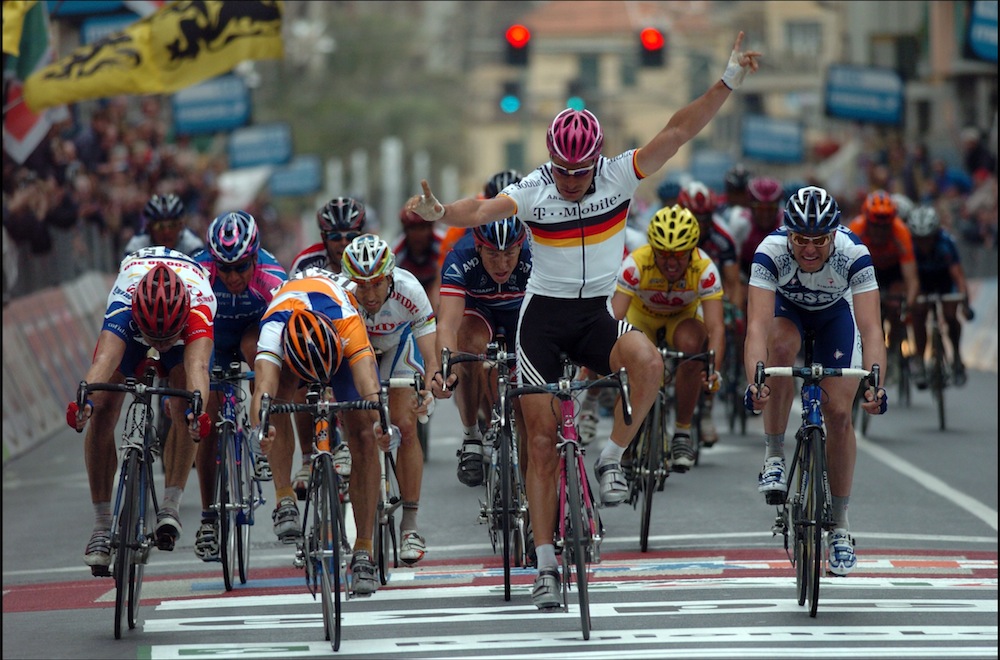
2004
How it was won: SPRINT
Igor Astaraloa and Samuel Sanchez are among those who try to get away on the descent of the Poggio but Petacchi's Fassa Bortolo squad keep a lid on things to set up the sprint. Erik Zabel thought he had it, but is pipped on the line by Freire.
2003
How it was won: POGGIO ATTACK
Luca Paolini of Quick Step attacks behind Danilo Di Luca of Saeco. Another Saeco rider, Mirko Celestino, and Paolini's team-mate Paolo Bettini go with it. Paolini, Celestino and Bettini stay clear, with Bettini attacking late to clinch the win.
Follow on Twitter: @richwindy
Richard is digital editor of Cycling Weekly. Joining the team in 2013, Richard became editor of the website in 2014 and coordinates site content and strategy, leading the news team in coverage of the world's biggest races and working with the tech editor to deliver comprehensive buying guides, reviews, and the latest product news.
An occasional racer, Richard spends most of his time preparing for long-distance touring rides these days, or getting out to the Surrey Hills on the weekend on his Specialized Tarmac SL6 (with an obligatory pub stop of course).
